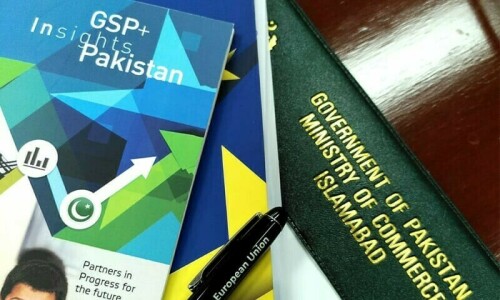
ISLAMABAD: The government on Saturday “strongly refuted” reports circulating on social media platforms regarding the imposition of a fixed tax on solar power generation, but it hinted at some changes in the policy and a fresh plan to review the rate of net metering after similar botched attempts more than a year ago.
“There is no truth in the news regarding imposing fixed tax, and the Central Power Purchasing Agency (CPPA) or Power Division has not sent any such summary to the government in this regard,” says a statement issued by the Power Division.
Reports were circulating on social media platforms that a summary had been moved to introduce the fixed tax on solar electricity and that the CPPA had proposed levying a tax of Rs2,000 per kilowatt on solar panels for residential or commercial purposes.
Hints at some ‘changes’ in net metering policy
The statement from the Power Division says that the well-off were massively installing solar panels, which caused domestic, industrial, and government consumers and the government to bear the burden of Rs1.90 per unit under the subsidy head, affecting 25 to 30 million consumers.
“If this trend continues, the bills of poor consumers will surge at least Rs3.35 per unit,” the statement said, adding that the Net Metering Policy 2017 was aimed at promoting alternative energy in the system. After 2017, the solarisation process witnessed a sharp increase.
It said that the whole system was being reviewed and now there was a need to announce a new rate. Proposals and amendments were being considered to save the poor consumers from further burden. The government would protect investment carried out through 1.5 to 2 million net metering, it concluded.
It may be recalled that during a meeting of the Senate Standing Committee on Power on Feb 20, the then caretaker minister for power Muhammad Ali and the ministry officials had hinted at the government’s plan of lower net metering tariff to owners of rooftop solar power, saying they were “rich, well-to-do and big homeowner” urbanites capable of paying excessive power rates compared to small consumers living in five-marla or so houses.
This tariff currently stood at Rs22 per unit but would be revisited going forward, Mr Ali had said in response to a worried senator who had pointed out that citizens had invested in rooftop solar panels after previously encouraged by the government and suggested that many countries promoted cheaper solar electricity.
However, the minister said there was a consideration that this tariff was on the higher side and should be brought down, adding that the country had surplus generation capacity.
Published in Dawn, April 28th, 2024













































Dear visitor, the comments section is undergoing an overhaul and will return soon.